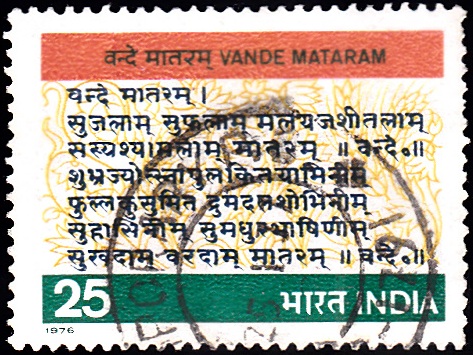
Vande Mataram
A commemorative postage stamp on Bande Matarom, a Sanskrit poem written by Bankim Chandra Chattopadhyay and composed into song by Rabindranath Tagore :
Issued on Dec 30, 1976
Issued for : The Posts & Telegraphs Department is privileged to issue a commemorative postage stamp honouring the national song, ‘Vande Mataram‘.
Description of Design : The design of the stamp is horizontal and reproduces the first stanza of the song “Vande Mataram“.
Type : Stamp, Postal Used
Colour : Multicolour
Denomination : 25 Paise
Overall size : 3.91 X 2.90 cms.
Printing size : 3.55 X 2.54 cms.
Perforation : 13 x 13
Watermark : Printed on unwatermarked adhesive stamp paper
Number printed : 30,00,000
Number per issue sheet : 35
Printing process : Photogravure
Designed and printed at : India Security Press
About :
- ‘Vande Mataram‘, the immortal song composed by Bankim Chandra Chatterjee, is more than a hundred years old. Though it first appeared in the first instalment of serialisation of Bankim Chandra‘s Bengali novel, Anand Math, in 1881, there is clear evidence to show that it was composed independently earlier in 1875. Writing in the English Daily, ‘Bande Mataram‘, on 16th April, 1907, Sri Aurobindo said: “It was 32 years ago that Bankim wrote his great song….“.
- In his novel Anand Math, Bankim Chandra wrote about Sanyasis who left their hearths and homes and dedicated their lives to the cause of their motherland. The characters in his novel personified the motherland as the Mother Goddess and worshipped her as such. They knew no other deity excepting the motherland and no other religion excepting the religion of patriotism. This spirit was reflected in the song ‘Vande Mataram‘. According to Sri Aurobindo, Bankim Chandra perceived three main elements which constituted the moral strength so necessary for serving the motherland. They were firstly Tyaga or complete self-sacrifice, secondly self-discipline and organisation and thirdly patriotism itself as religion. These ideas found perfect lyrical expression in the great song which enthused and activated millions of people during the freedom struggle. The song aroused the spirit of intense nationalism.
- While the Song became the anthem of resurgent Indian nationalism, its title ‘Vande Mataram‘ (meaning, I bow to thee, Mother) became the battle cry of freedom fighters all over the country. Rabindranath Tagore set the song to music and sang it at the 1896 session of the Indian National Congress. He did so again at the Calcutta session of the Congress in 1906.
- The impact of the song over the people was so much that the then alien rulers were alarmed. They resorted to repressive measures and prohibited the shouting of ‘Vande Mataram‘ in schools, colleges and public places. At thousands of places throughout the length and breadth of the then undivided India, people were beaten up and jailed by the authorities just for shouting ‘Vande Mataram‘. The fame of the song spread abroad also. When Gopal Krishna Gokhale visited South Africa in 1912, a mammoth gathering greeted him at Capetown with the slogan ‘Vande Mataram‘.
- Referring to the ‘Vande Mataram‘ song Mahatma Gandhi wrote in the Harijan in July 1939 :
“It is enthroned in the hearts of millions. It stirs to its depth the patriotism of millions in and outside Bengal. Its chosen stanzas are Bengal’s gift among many others to the whole nation…“ - In August 1948 Jawaharlal Nehru said in a statement made in Parliament :
“Vande Mataram is obviously and indisputably the premier national song of India with a great historical tradition; it was intimately connected with our struggle for freedom. That position, it is bound to retain and no other song can displace it. It represents the passion and poignancy of that struggle….“ - At the time of constitution-making, although Rabindranath Tagore‘s song, Jana-gana-mana, was adopted as the national anthem of independent India, Vande Mataram was given an equal status with Jana-gana-mana.
- The following is the text of the first stanza of the Vande Mataram song :
Vande Mataram;
Sujalam, suphalam, malayajashitalam,
Sasyashyamalam, mataram,
Shubhrajyotsna pulakitayaminim,
Phullakusumita drumadala shobhinim,
Suhasinim sumadhura bhashinim,
Sukhadam, varadam, Mataram! - The English translation of the stanza by Sri Aurobindo is :
I bow to thee, Mother,
richly-watered, richly-fruited,
cool with the winds of the south,
dark with the crops of the harvests,
the Mother!
Her nights rejoicing in the glory of the moonlight,
her lands clothed beautifully with her trees in flowering bloom,
sweet of laughter, sweet of speech,
the Mother, giver of boons, giver of bliss!



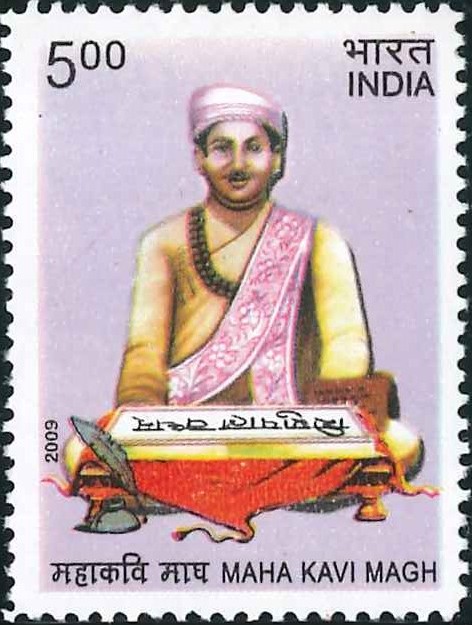
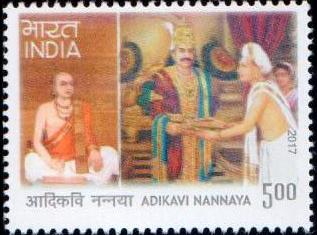
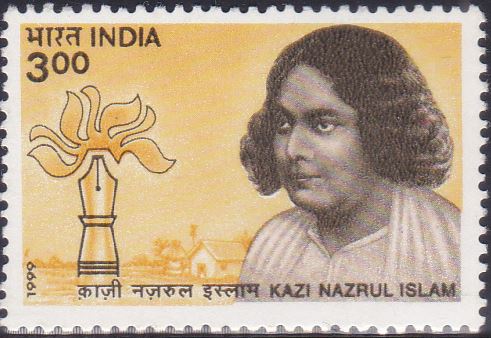
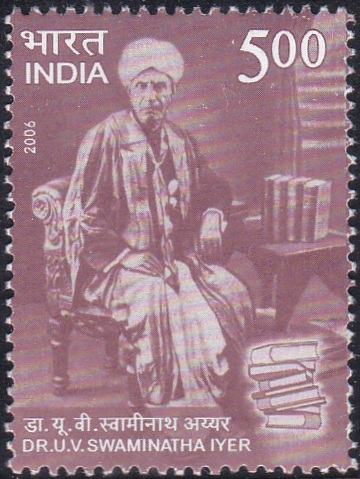
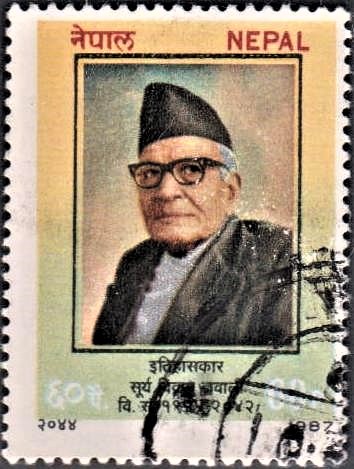

[…] proceedings continued during which the revolutionaries used to sing patriotic songs and raise ‘Vande Mataram’ and ‘Inquilab Zindabad’ […]
[…] rubbed on to Keshavrao in his childhood itself. For organising students to raise the slogan of “Vande Mataram” during the visit of Inspector of Schools, he was expelled from high school. He passed the […]
[…] A measure of his influence on the freedom movement is the popularity of the nationalist song “Bande Mataram” which occurs in his novel “Ananda Math”. Even today, the popularity of this song is second […]
[…] the end of her speech she unfurled a Tri-colour flag in green, yellow and red with the words ‘Bande Matram‘ written on it, which she called the Indian national […]
[…] being in 1905. It was made by Sister Nivedita, an Irish disciple of Swami Vivekananda. The words Vande Mataram in Bengali script were written on it. The flag also contained figure of Vajra in the middle, the […]